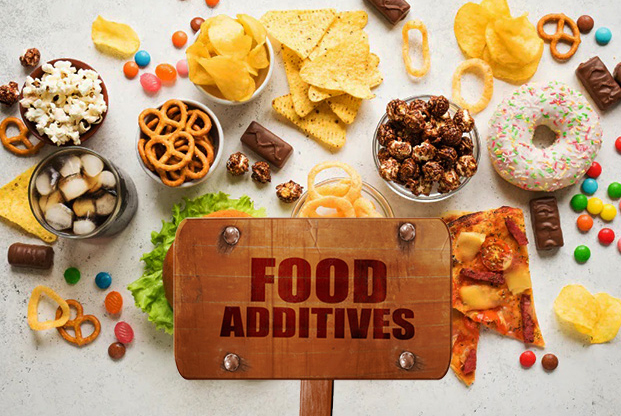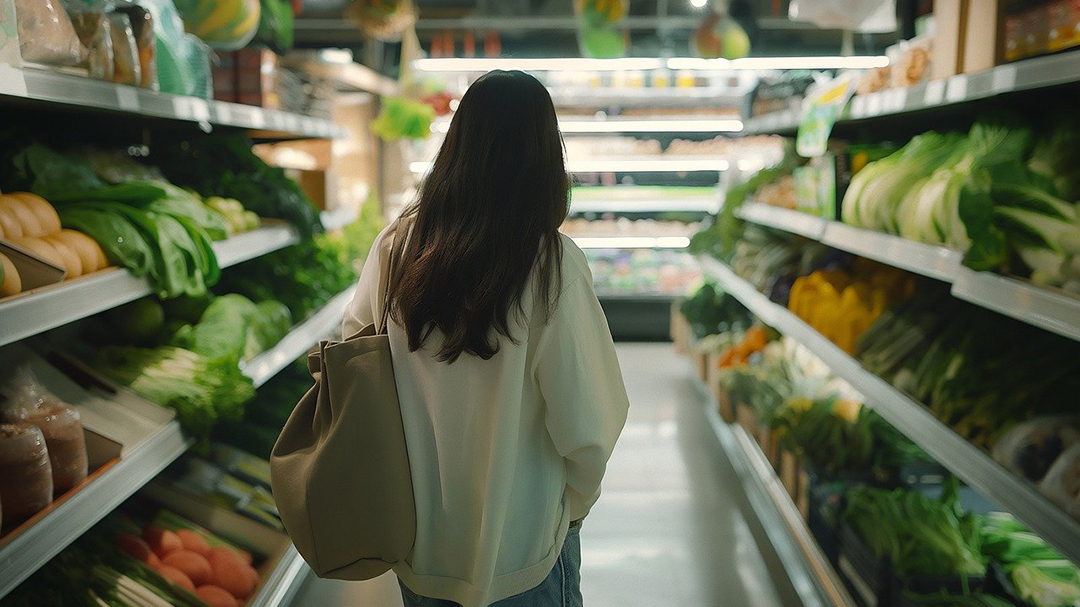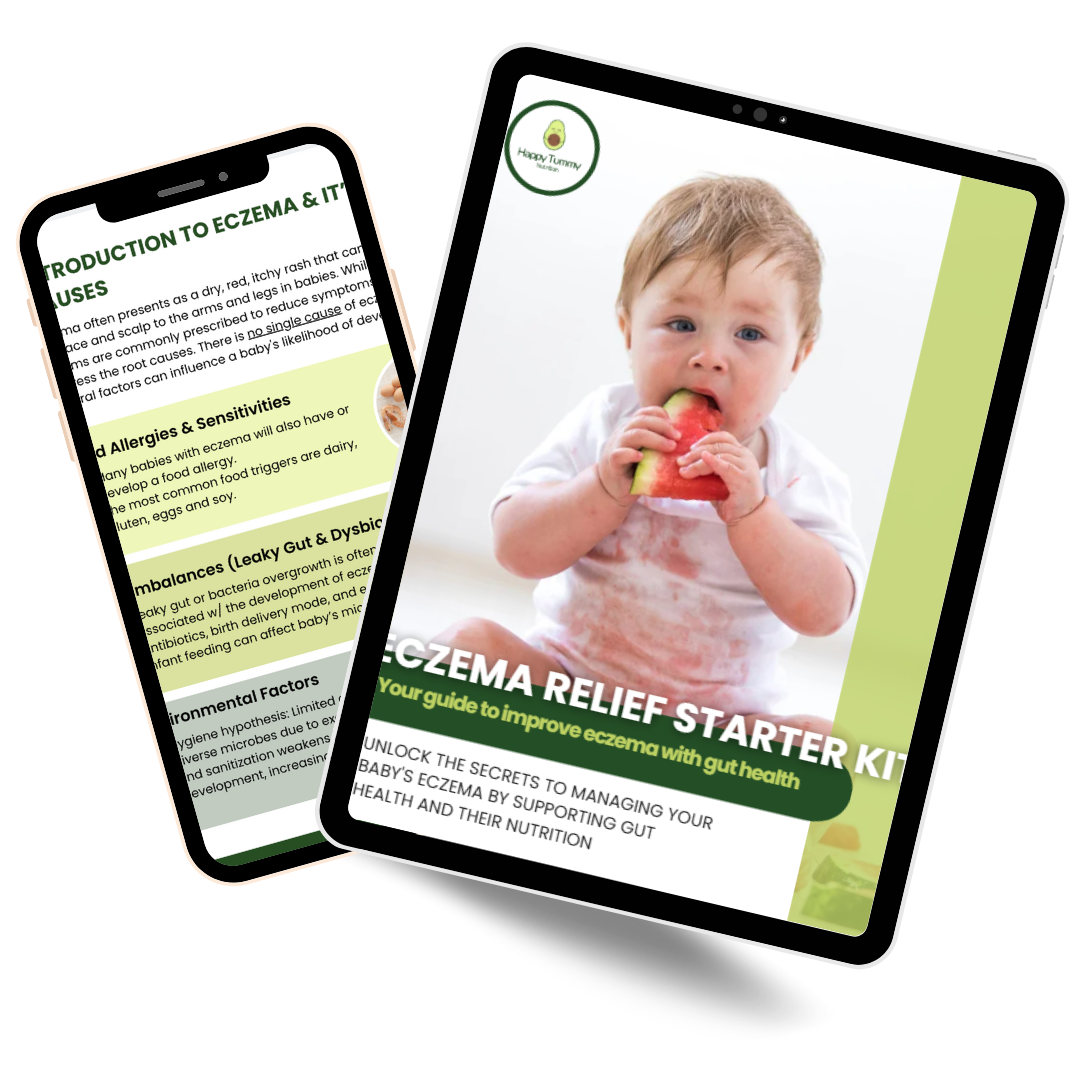Choosing Gut-Friendly Foods
1. Fermented Foods That Are Safe For Kids
Gut Healthy Yogurts for Kids (Not all are created equal)
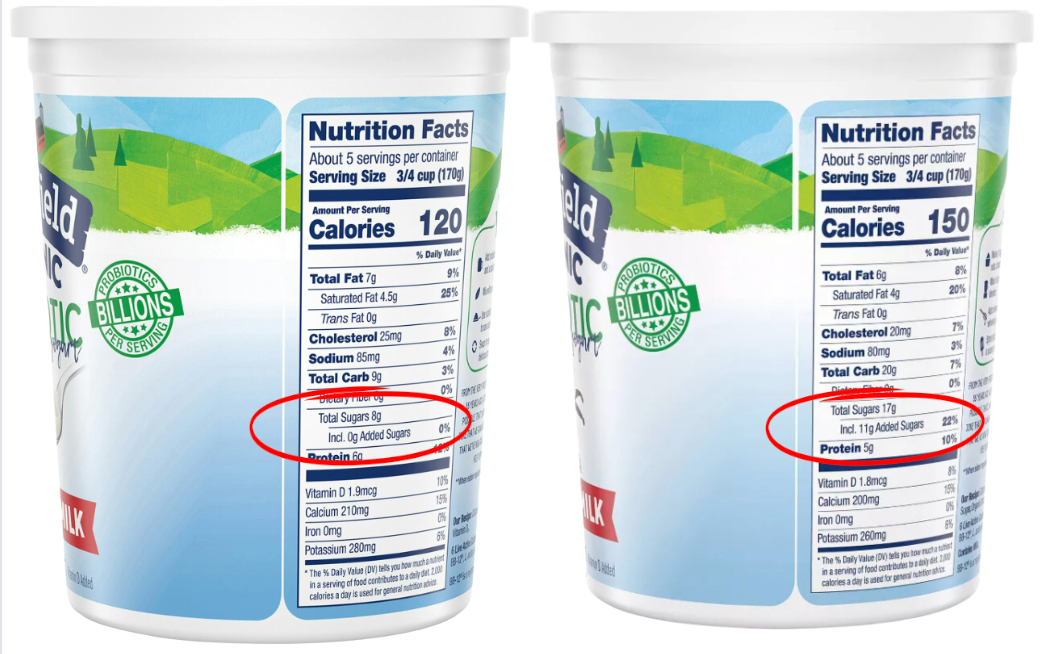
Kefir for Gut Health
Kefir is a fermented milk drink similar to yogurt, but it can contain up to 60 different strains of probiotics, including Lactobacillus, Bifidobacterium, and Streptococcus. When shopping for kefir, you’ll typically find it in the dairy section of your grocery store, near the yogurt. Look for plain, unsweetened kefir to avoid added sugars, which can feed harmful bacteria in the gut. There are many ways to incorporate kefir into your child’s diet. You can:
- Offer it as a drink on its own, either plain or with a bit of fruit
- Use it as a base for smoothies, blending it with fruits, vegetables, and other gut-friendly ingredients like chia seeds or avocado.
- Substitute kefir for buttermilk or yogurt in recipes for pancakes, waffles, or baked goods. While heating does kill off the probiotics, it is still a nutrient-dense substitute.
- Use it as a tangy, probiotic-rich base for salad dressings or dips.
Sauerkraut for Gut Health
2. Prebiotic-rich foods that are safe for kids
Garlic and Onions for For Gut Health
Potatoes and Resistant Starch

Are Unripe Bananas Healthier for Gut Health?
Bananas in general are an excellent source of nutrients, but did you know that unripe bananas contain more resistant starch than ripe bananas. Similar to cooked and cooled potatoes, the resistant starch is used as food for the beneficial bacteria. As bananas ripen, their resistant starch content decreases and is replaced by simple sugars. That’s why it’s best to choose slightly green bananas when looking to boost your family’s prebiotic intake.
Unripe bananas can be a bit tougher and less sweet than their ripe counterparts, but they can still be used in a variety of ways. Try adding them to smoothies for a creamy texture and prebiotic boost, or slice them onto oatmeal or cereal for a nutrient-dense topping. You can also use unripe bananas in baked goods like muffins or bread, where their firmer texture can help add structure and moisture.
Other prebiotic-rich foods to consider adding to your shopping list include:
- Asparagus
- Leeks
- Onions
- Garlic
- Jerusalem artichokes
- Chicory root
- Barley
- Oats
- Apples
- Flaxseeds
By incorporating a variety of these prebiotic-rich foods into your family’s diet, you can help support the growth and diversity of beneficial gut bacteria. Aim to include at least one prebiotic-rich food in each meal or snack, and don’t be afraid to experiment with new recipes and flavor combinations.
3. High-Fiber Foods for Kid’s Gut Health
When it comes to boosting your family’s fiber intake, fruits and vegetables with edible skins are an easy choice! The skin and seeds of many fruits and vegetables are rich in pectin, a type of soluble fiber that can help promote regular bowel movements and improve digestive health. Pectin works by drawing water into the colon, softening the stool and making it easier to pass.
Some of the best fruits and vegetables with edible skins and seeds include:
- Berries, like strawberries, raspberries, and blueberries
- Apples and pears
- Kiwis
- Squash, like acorn and butternut
- Cucumber
- Potatoes
Absolutely! Frozen and canned vegetables are a convenient and affordable way to boost your family’s fiber intake. These options are often picked and processed at peak ripeness, which helps lock in their nutrients and flavor. This means that frozen vegetables can be just as nutritious (if not more so) than their fresh counterparts, especially if the fresh produce has been sitting on the shelf for a while. Canned vegetables are another good option, as they are often more affordable than fresh or frozen produce and have a longer shelf life. Some of the best frozen and canned vegetable options for boosting fiber intake include: Broccoli, Cauliflower, Spinach, Peas, Corn and Green beans.
My favorite lil secret — RICED CAULIFLOWER! This can literally be thrown into any dish (even mac and cheese!) and VOILA, you boosted your family’s fiber intake for the day.
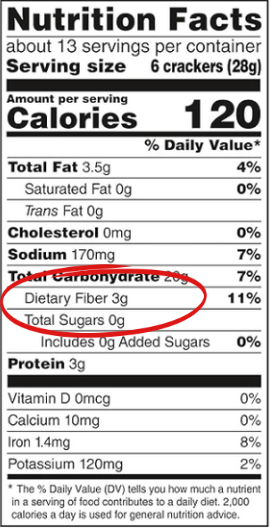
Whole-grain bread, pasta, and crackers
- Dave’s Killer Bread 21 Whole Grains and Seeds
- Ezekiel 4:9 Sprouted Whole Grain Bread
- Banza Chickpea Pasta
- Barilla Whole Grain Spaghetti
- Wasa Whole Grain Crispbread
- Triscuit Original Whole Grain Wheat Crackers
Rice and quinoa:
- Minute Brown Rice
- Success Brown Rice, Whole Grain
- RiceSelect Quinoa, Tri-Color
- Bob’s Red Mill Organic Quinoa
Cereals and oatmeal:
- Life Cereal, Multigrain, Original
- Multi Grain Cheerios
- Kellogg’s Raisin Bran
- Quaker Old Fashioned Oats
- Bob’s Red Mill Steel Cut Oats
Snacks:
- Orville Redenbacher’s Gourmet Naturals Simply Salted Popcorn
- ZBAR CLIF Kid Zbar Protein
- Happy Tot Organics Fiber & Protein Oat Bar
- Sunmaid Dried Figs
- 365 Everyday Value Organic Pitted Medjool Dates
Be Mindful of Foods that are Damaging to the Gut
1. Ultra-Processed Foods
One of the main problems with processed foods is that they often lack the fiber and nutrients that are essential for maintaining a healthy gut. Instead, they are typically high in refined carbohydrates and sugars, which can feed the harmful bacteria in the gut and lead to an overgrowth of these organisms. This can result in a condition known as dysbiosis, where the balance of good and bad bacteria in the gut is disrupted.
In addition to lacking fiber, processed foods are often high in added sugars. These sugars can come in many forms, including high fructose corn syrup, cane sugar, and even “natural” sugars like honey and agave nectar. While some sugar in the diet is okay, excessive sugar consumption has been linked to a variety of health problems.
When shopping for packaged snacks and processed foods, it’s essential to read the nutrition labels carefully. Look for options that have less than 10 grams of added sugar per serving!
2. Food Additives that can cause Gut Damage
Carrageenan is a common food additive used as a thickener and emulsifier in processed foods, such as dairy products, plant-based milks, and deli meats. Some studies have suggested that carrageenan may disrupt the gut microbiome by promoting inflammation and altering the composition of gut bacteria. This disruption may lead to digestive issues, such as bloating, abdominal pain, and diarrhea, in some individuals.
Sodium carboxymethyl cellulose (CMC) is a synthetic cellulose derivative that is commonly used as a thickener, emulsifier, and stabilizer in processed foods, such as ice cream, bread, and salad dressings. Some animal studies have suggested that CMC may disrupt the gut microbiome by altering the composition of gut bacteria and promoting the growth of harmful bacteria. This disruption may lead to increased intestinal inflammation.
Polysorbate 80 is a synthetic emulsifier that is commonly used in processed foods, such as ice cream, baked goods, and salad dressings, as well as in some medications and supplements. Some studies have suggested that polysorbate 80 may disrupt the gut microbiome by altering the composition of gut bacteria and promoting the growth of harmful bacteria.
